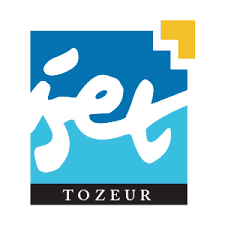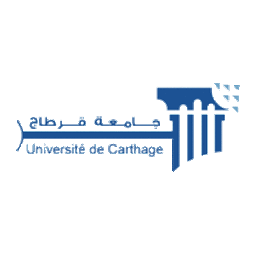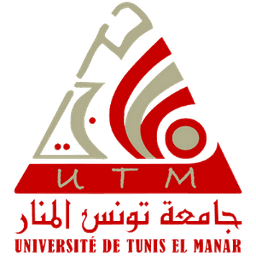Higher Education Jobs in Tunisia
Tunisia offers vibrant academic opportunities for job seekers and academics looking to build rewarding careers. With a growing focus on higher education, the country is home to prestigious institutions like the University of Tunis El Manar, known for its research in sciences and humanities. Tunisia University Jobs are in high demand, spanning roles such as lecturers, researchers, and professors. The academic sector in Tunisia is evolving, with an emphasis on innovation in fields like technology, medicine, and engineering.
Whether you're exploring academic careers in Tunisia or seeking professor positions in Tunisia, platforms like AcademicJobs.com provide tailored resources to help you succeed. Discover higher education jobs in Tunisia and connect with opportunities that match your expertise. Additionally, for insights into teaching quality, check out professor ratings through Rate My Professor to make informed career decisions.
Tunisia's higher education system is deeply rooted in a blend of Arab, African, and Mediterranean influences, making it a unique destination for academics. The country hosts over 200 higher education institutions, including public universities and private institutes, catering to a diverse student population. Key areas of academic growth include renewable energy research, agricultural sciences, and digital transformation, aligning with national development goals. For those passionate about lecturer roles in Tunisia or research jobs in Tunisia, the opportunities are vast and varied.
Explore careers and resources tailored to Tunisia at AcademicJobs.com. Whether you're a seasoned academic or a student aspiring to join the faculty, Tunisia offers a dynamic environment to grow professionally.
Top Universities in Tunisia:
University of Tunis El Manar
Located in the capital, Tunis, this university is a leader in medical and scientific research with a strong international presence.
Visit WebsiteUniversity of Sfax
Known for its programs in engineering and business, the University of Sfax is a hub for innovation in southern Tunisia.
Visit WebsiteUniversity of Sousse
Situated in a coastal city, it excels in tourism studies, law, and humanities, attracting a diverse academic community.
Visit WebsiteFaculty Job Opportunities in Tunisia
Tunisia offers a range of faculty job opportunities for academics seeking to advance their careers. High-demand roles include Assistant Professor, Lecturer, and Research Fellow positions, particularly in fields like engineering, medicine, and information technology. Institutions such as the University of Tunis El Manar and the University of Sfax frequently seek qualified candidates for professor positions in Tunisia. The academic job market is competitive, with a growing emphasis on interdisciplinary research and international collaboration.
Salaries for faculty roles in Tunisia vary based on experience, institution, and specialization. According to recent data, entry-level positions like Assistant Professors can expect to earn between TND 12,000 to TND 18,000 annually (approximately $4,000–$6,000 USD), while Associate Professors and Full Professors may earn between TND 20,000 to TND 30,000 annually ($6,500–$10,000 USD). These figures are influenced by factors such as public versus private institutions and regional cost of living. For those exploring academic careers in Tunisia, salary transparency is key to making informed decisions.
Higher education jobs in Tunisia also include administrative roles such as Department Chairs and Deans, which offer additional career growth. The Tunisian government and universities are investing in modernizing education, creating more opportunities for research jobs in Tunisia. Whether you're interested in lecturer roles in Tunisia or tenure-track positions, platforms like AcademicJobs.com provide access to the latest openings. Faculty at institutions like the University of Sousse often engage in projects with regional impact, enhancing their professional profiles.
To explore the best faculty jobs in Tunisia, visit AcademicJobs.com and filter by location and specialization. This resource connects you with opportunities tailored to your skills and career goals, ensuring you find the right fit in Tunisia's academic landscape.
Assistant Professor
Entry-level role focusing on teaching and research, often at institutions like University of Tunis El Manar. Salary: TND 12,000–18,000/year.
Explore RolesLecturer
Focus on teaching undergraduate courses with opportunities at University of Sfax. Salary: TND 10,000–15,000/year.
Explore RolesResearch Fellow
Engage in cutting-edge projects, often in science and technology. Salary: TND 15,000–20,000/year.
Explore RolesAssociate Professor
Mid-level role with tenure potential, balancing teaching and research. Salary: TND 20,000–25,000/year.
Explore RolesWhy Pursue a Career in Tunisia Academia
Academic careers in Tunisia offer a unique blend of cultural richness and professional growth. The country is strategically positioned in North Africa, serving as a bridge between Europe and the Arab world, which fosters diverse research opportunities. Tunisia is known for its contributions to fields like renewable energy, particularly solar power, and agricultural innovation, making it an appealing destination for researchers and educators passionate about impactful work.
Pursuing faculty jobs in Tunisia provides access to a supportive academic community with strong ties to international networks. The government’s focus on education reform and investment in higher education creates a promising environment for career progression. Additionally, the cost of living in Tunisia is relatively affordable compared to many Western countries, allowing academics to maintain a comfortable lifestyle while contributing to the region’s development. Explore Tunisia academic opportunities at AcademicJobs.com.
Salary Guide for Faculty in Tunisia
Faculty salaries in Tunisia vary significantly based on role, experience, and institution type. Public universities, which dominate the higher education landscape, often offer stable salaries with benefits like pension plans and job security. Private institutions may provide higher pay but with less stability. Below is a detailed breakdown of salary ranges for common academic positions in Tunisia, based on recent data and trends in the region. 📊
For an Assistant Professor, the starting salary typically ranges from TND 12,000 to TND 18,000 per year (approximately $4,000–$6,000 USD). With a few years of experience, an Associate Professor can earn between TND 20,000 and TND 25,000 annually ($6,500–$8,000 USD). Full Professors, often with decades of experience and significant research contributions, may earn between TND 25,000 and TND 30,000 per year ($8,000–$10,000 USD). These figures are averages and can be higher in specialized fields like medicine or engineering, or at prestigious institutions in locations like Tunis. 📍
Factors affecting salaries include the type of institution (public vs. private), geographic location, and academic discipline. For instance, faculty in urban centers like Tunis often earn more due to higher living costs. Additionally, research grants and international collaborations can supplement income for those engaged in research jobs in Tunisia. For the most current data on salaries in Tunisia academia, resources like AcademicJobs.com offer valuable insights.
Understanding salary expectations is crucial for anyone considering academic careers in Tunisia. While the pay may be lower compared to Western countries, the cultural experience and professional impact of working in Tunisia are significant draws. Explore more about faculty salaries in Tunisia and career paths at AcademicJobs.com.
| Position | Annual Salary (TND) | Annual Salary (USD) |
|---|---|---|
| Assistant Professor | 12,000 - 18,000 | 4,000 - 6,000 |
| Associate Professor | 20,000 - 25,000 | 6,500 - 8,000 |
| Full Professor | 25,000 - 30,000 | 8,000 - 10,000 |
| Lecturer | 10,000 - 15,000 | 3,300 - 5,000 |
Rate My Professor: Top Educators in Tunisia
Finding the right educators can shape your academic journey. With Rate My Professor on AcademicJobs.com, students and academics can explore professor ratings in Tunisia to make informed decisions about courses and mentorship. This platform allows users to rate professors based on teaching style, clarity, and helpfulness, fostering transparency in higher education.
Below are examples of highly rated professors in Tunisia, based on student feedback at top universities. These profiles highlight the quality of education available and how ratings help recognize teaching excellence:
- Dr. Amina Ben Salah - University of Tunis El Manar, Department of Medicine. Rated 4.8/5 for her engaging lectures and dedication to student success.
- Prof. Karim Trabelsi - University of Sfax, Department of Engineering. Rated 4.7/5 for innovative teaching methods and industry insights.
- Dr. Fatima Zohra - University of Sousse, Department of Humanities. Rated 4.9/5 for her supportive approach and deep subject knowledge.
Career Progression in Tunisia Academia
Career paths in Tunisia academia typically follow a structured progression from entry-level roles like Lecturer or Assistant Professor to senior positions such as Associate Professor and Full Professor. Tenure-track opportunities are available, particularly in public universities, offering job security and research funding. Salaries increase with rank, as outlined in the salary guide, with additional benefits for those who secure grants or international projects.
Tunisia’s academic strengths lie in fields like renewable energy and agricultural sciences, providing unique research opportunities. Professional development is supported through conferences and workshops, often funded by universities or government initiatives. For career guidance and job openings, explore resources at AcademicJobs.com.
Research and Trends in Tunisia Higher Education
Tunisia’s higher education sector is witnessing significant growth, with trends focusing on digital transformation, renewable energy, and sustainable agriculture. Research funding is increasingly available through government programs and international partnerships, particularly with European institutions. Interdisciplinary studies are gaining traction, blending technology with traditional fields like history and culture.
Major research areas include solar energy innovation, given Tunisia’s abundant sunlight, and water resource management, critical to the region. Global collaborations are expanding, offering academics opportunities to work on impactful projects. For the latest on research jobs in Tunisia, visit AcademicJobs.com.
Resources for Tunisia Academics
- Tunisian Association of University Teachers - A key network for professional support and advocacy. 🎓
- International Conference on Renewable Energy (Tunis) - Annual event for networking and research sharing. 💡
- Tunisian Journal of Science and Technology - A platform for publishing research. 📚
- Government Grants for Higher Education - Funding opportunities for research and development. 💰
- Professional Development Workshops - Often hosted by universities, costing approximately TND 200–500 per event. 🖥️
Student Perspectives in Tunisia Higher Education
Students in Tunisia have access to diverse programs in fields like engineering, medicine, and humanities at institutions such as the University of Tunis El Manar. Choosing the right professor can significantly impact learning outcomes, and platforms like Rate My Professor on AcademicJobs.com help students make informed decisions. Career outcomes are promising, with many graduates entering academia or industry roles within the region.









